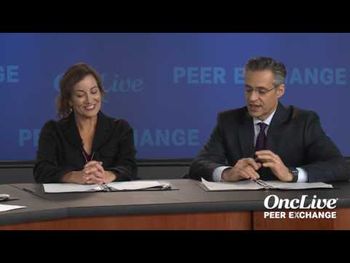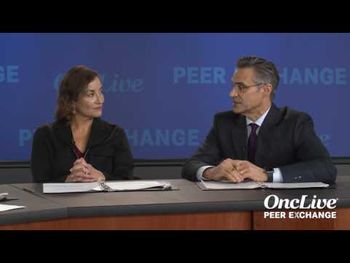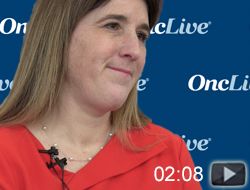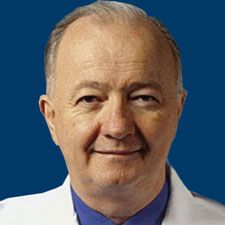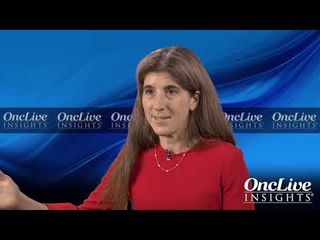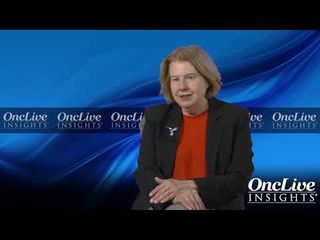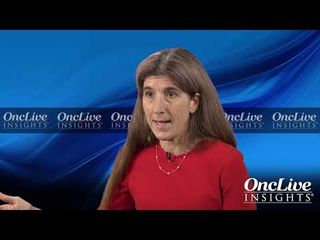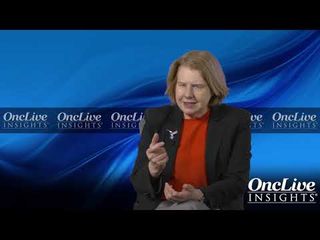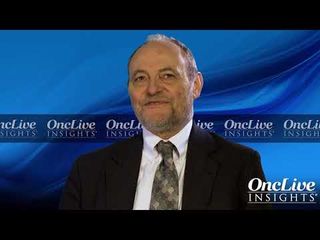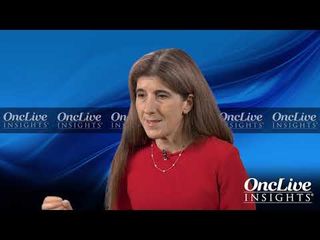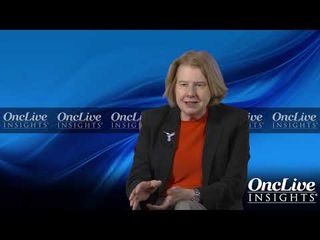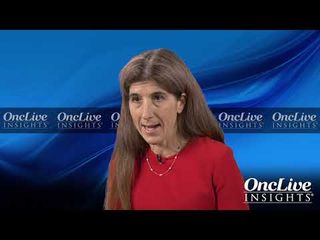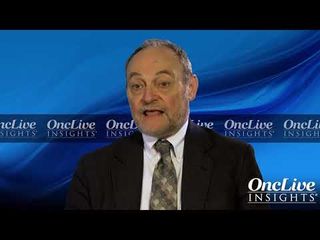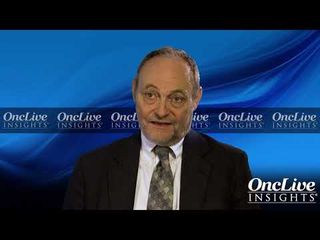
Ovarian Cancer
Latest News
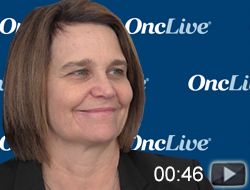
Latest Videos

CME Content
More News

Maintenance therapy with olaparib showed a 70% reduction in the risk of progression or death compared with placebo for patients with platinum-sensitive, relapsed, BRCA-mutant ovarian cancer.

Christina M. Annunziata, MD, PhD, head, Translational Genomics Section, National Cancer Institute, discusses the phase II/III study of olaparib (Lynparza) and cediranib for patients with platinum-resistant ovarian cancer.

Treatment with a carboplatin desensitization regimen led to improved overall survival in patients with BRCA-proficient ovarian cancer.

The PARP inhibitor niraparib improved progression-free survival in patients with recurrent, platinum-sensitive, high-grade ovarian cancer, regardless of BRCA status, according to a review of the phase III ENGOT-OV16/NOVA trial presented at the 2017 Society of Gynecologic Oncology Annual Meeting.

Jubilee Brown, MD, obstetrician-gynecologist, Levine Cancer Institute, Carolinas HealthCare System, discusses genetic counseling for patients with breast and ovarian cancer.

Ursula A. Matulonis, MD, professor of Medicine, Harvard Medical School, medical director of Gynecologic Oncology, Dana-Farber Cancer Institute, discusses the secondary efficacy results of the NOVA trial, which examines niraparib maintenance therapy for patients with ovarian cancer.

Hypermethylation of 2 wild-type tumor-associated genes increased ovarian cancer responsiveness to the PARP inhibitor rucaparib (Rubraca).
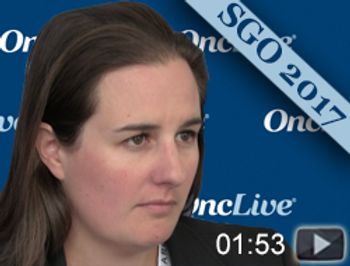
Emma Barber, MD, UNC Department of Obstetrics and Gynecology, UNC School of Medicine, UNC Lineberger Comprehensive Cancer Center, discusses surgical readmission and survival in patients with ovarian cancer.

Elizabeth Swisher, MD, professor, Department of Medicine, Division of Medical Genetics, University of Washington School of Medicine, Breast and Ovarian Cancer Prevention Program, Seattle Cancer Care Alliance, discusses next steps regarding treatments for patients with ovarian cancer.

The PARP inhibitor rucaparib slowed progression of relapsed BRCA-mutant ovarian cancer regardless of whether the mutations were somatic or germline, a new analysis of a phase II trial showed.
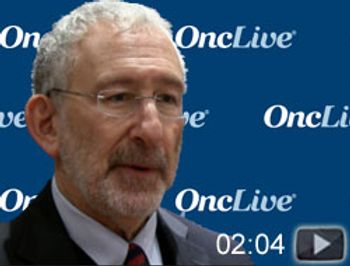
Maurie Markman, MD, president, Medicine and Science, Cancer Treatment Centers of America, editor-in-chief, OncologyLive, discusses what he would like to see accomplished in the field of ovarian cancer over the next year.

A panel of gynecologic oncology specialists discusses novel agents for the second, third, fourth, and even fifth lines of therapy and the growing importance of molecular signature, histology, and time to recurrence in treatment decisions.
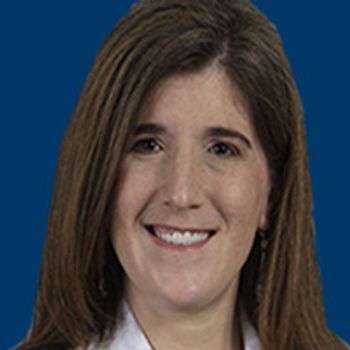
A novel targeted therapy, mirvetuximab soravtansine (IMGN853), is being investigated as a single-agent treatment for patients with advanced, platinum-resistant epithelial ovarian cancer with medium and high expression levels of folate receptor-alpha in an effort to provide an effective option for a population facing a difficult prognosis.

Dr. Elizabeth Swisher discusses biomarkers for PARP inhibitors and the evolving role of these agents in ovarian cancer.

Results of a phase I expansion study demonstrated a manageable safety profile and clinical activity with mirvetuximab soravtansine in the treatment of patients with platinum-resistant ovarian cancer.

Douglas A. Levine, MD, discussed the relationship between EMSY and BRCA, the potential to target EMSY amplified tumors with PARP inhibitors, and the future of ovarian cancer treatment.
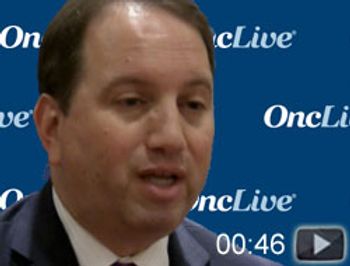
Douglas A. Levine, MD, professor, Department of Obstetrics and Gynecology, director, Division of Gynecologic Oncology, NYU Langone Medical Center, discusses some of the ongoing challenges researchers need to tackle in the field of ovarian cancer.
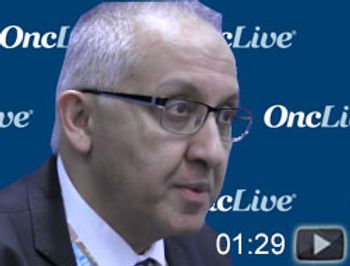
Mansoor Raza Mirza, MD, chief oncologist at Rigshospitalet, Copenhagen, Denmark, discusses the efficacy of niraparib as a treatment of patients with ovarian cancer.
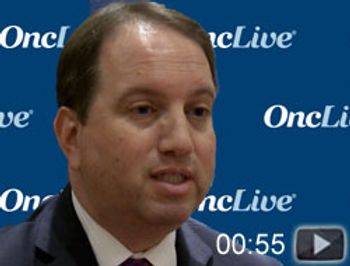
Douglas A. Levine, MD, professor, Department of Obstetrics and Gynecology, director, Division of Gynecologic Oncology, NYU Langone Medical Center, discusses what potential PARP inhibitors could have with chemotherapy regimens as a treatment for patients with ovarian cancer.
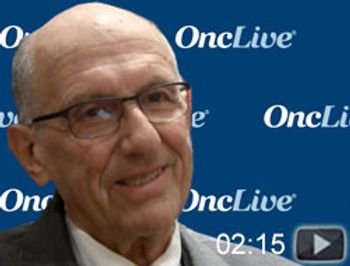
Franco M. Muggia, MD, PhD, professor, Department of Medicine, NYU Langone Medical Center, discusses the GOG 252 trial, which looked at the use of intravenous versus intraperitoneal chemotherapy in the treatment of patients with ovarian cancer.
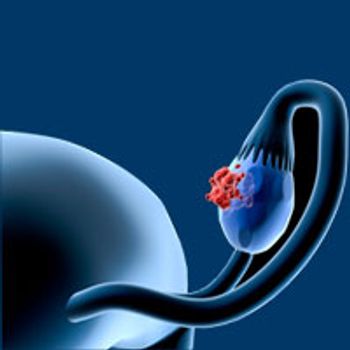
Diagnostic laparoscopy reduced the number of futile laparotomies in patients with suspected advanced-stage ovarian cancer, according to the results of a recent study.

Long or irregular menstrual cycles may be a marker of an increased risk for developing certain subtypes of ovarian cancer, according to the results of a recent study.

Franco M. Muggia, MD, discusses the results of the Gynecologic Oncology Group (GOG) 252 trial and what the findings mean regarding intraperitoneal therapy for patients with ovarian cancer.
